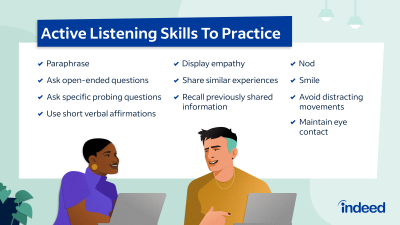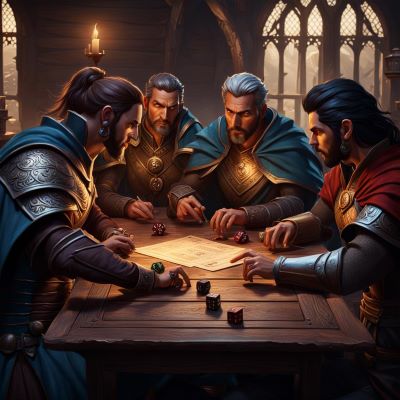When playing Dungeons & Dragons (D&D), where dragons soar, magic crackles, and heroes rise, one skill is often often-overlooked: active listening. As players gather around the table, dice in hand and imaginations alight, the ability to truly hear and understand one another can transform a good campaign into an unforgettable adventure. But beyond the realm of fantasy, the art of active listening cultivated during game sessions can also wield its magic in the workplace. Done well it shapes collaboration, creativity, and communication. Let’s delve deeper into the significance of this skill in both spheres and uncover tips to master this skill.
Understanding Active Listening in D&D
During game sessions, active listening isn’t just about waiting for your turn to speak or hearing the Dungeon Master’s (DM) narration. It’s about fully engaging with your fellow adventurers. From the dramatic monologues of a bard to the cautious plans of a rogue, every player brings their unique perspective to the table. Practicing this skill ensures that each voice is not just heard but truly valued.
Elevating Gameplay
Practicing active listening is everyone’s responsibility and should form a key part of both the DM and players toolkits. Here are some ways it enhances the game experience:
- Fostering Collaboration: D&D is a collaborative storytelling experience where every player’s input shapes the narrative. Being attentive encourages players to build upon each other’s ideas, creating richer plotlines and more dynamic encounters.
- Deepening Character Connections: By actively listening to their companions, players can better understand their characters’ motivations, fears, and aspirations. This empathy leads to stronger bonds within the party, enhancing role-playing and immersion.
- Improving Decision-Making: In the heat of battle or during crucial decision points, active listening ensures that no valuable information is overlooked. By carefully considering each party member’s input, players can make more informed choices, increasing their chances of success.

Tips for Mastering Active Listening
It’s all very well for me to bang on about the virtues of active listening, but how do we actually do it. Here are some tips that will help get you started:
- Stay Engaged: Maintain eye contact, nod in acknowledgment, and avoid distractions to show that you’re fully present in the game.
- Ask Clarifying Questions: If something isn’t clear or you need more details, don’t hesitate to ask. This not only demonstrates active listening but also enriches the storytelling experience.
- Reflect on Others’ Contributions: After a player shares their ideas or concerns, paraphrase their points to ensure understanding. This demonstrates respect and encourages further collaboration.
- Share the Spotlight: Resist the urge to dominate conversations or actions. Instead, actively encourage quieter players to share their thoughts and contribute to the story.
For more tips, why not visit this article by the Harvard Business Review.
Active Listening Beyond the Table
The advantages of active listening aren’t confined to the realm of orcs, adventurers and dice. In fact, they seamlessly translate into the modern workplace. Here are some of the benefits:
- Effective Communication: This skill fosters clear communication by ensuring that all perspectives are considered before decisions are made.
- Teamwork and Collaboration: Teams that actively listen to one another are better equipped to collaborate, problem-solve, and innovate, leading to more successful outcomes.
- Conflict Resolution: By practicing empathy and understanding in D&D, players develop invaluable conflict resolution skills that can diffuse tensions and foster positive relationships in the workplace.
- Leadership Development: Whether leading a party or a project team, active listening is a hallmark of effective leadership. Leaders who listen are better equipped to inspire, motivate, and empower their colleagues.
Final thoughts
In the game of Dungeons & Dragons, where tales of heroism and adventure unfold, the power of active listening reigns supreme. By honing this skill at the gaming table, players not only enhance their gameplay experience but also cultivate invaluable abilities that extend far beyond the boundaries of the fantasy world. So, as you gather with your fellow adventurers for your next campaign, remember the words of wisdom: listen well, for in the echoes of your companions’ voices lies the magic of true adventure.
When will you have an opportunity to practice active listening next?

